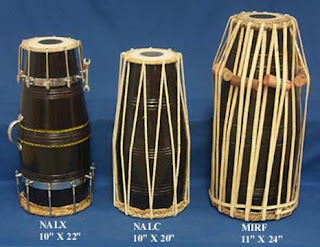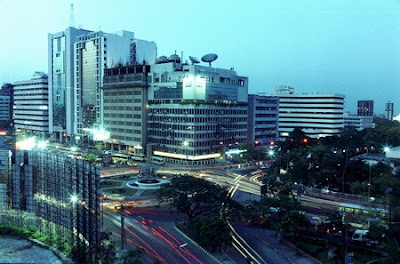This is the first flag of the independence movement. Initially, the flag had a map of Bangladesh in gold at the center of the red circle. This was the original design of the flag of Bangladesh under which the valiant freedom fighters fought during the liberation war.
The actual Flag....
 It was adopted the 13th of January 1972.The background color symbolizes the greenery of Bangladesh with its vitality and youthfulness while the red disc represents the rising sun and the sacrifice our people made to obtain our independence.
It was adopted the 13th of January 1972.The background color symbolizes the greenery of Bangladesh with its vitality and youthfulness while the red disc represents the rising sun and the sacrifice our people made to obtain our independence.
Where is this country located????
-Southern Asia, bordering the Bay of Bengal, between Burma and India-
And what about the climate????
-tropical; mild winter (October to March); hot, humid summer (March to June); humid, warm rainy monsoon (June to October)-
- Natural Resources: natural gas,coal,timber,arable land
- Terrain: Mostly flat alluvial plain, hilly in southeast
- Natural Hazards- droughts; cyclones; much of the country routinely inundated during the summer monsoon season
Some CURRENT environmental issues are:
-water borne diseases that prevalent in surface water; water pollution, especially fishing areas. They're caused from the use of commercial pesticides.
-ground water contaminated by natural occurring arsenic.
-intermittent water shortages caused by falling water tables in the northern and central parts of the country.
-soil degradation and erosion
-deforestation
-SEVERE overpopulation
-and...many people are landless and forced to live on and cultivate flood-prone land.
Population
-158,570,535 (July 2011 est.)-
Age structure:
0-14 years: 34.3% (male 27,551,594/female 26,776,647)
15-64 years: 61.1% (male 45,956,431/female 50,891,519)
65 years and over: 4.7% (male 3,616,225/female 3,778,119) (2011 est.)
Birth Rate:
22.98 births/1,000 population (2011 est.)
Death Rate:
5.75 deaths/1,000 population (July 2011 est.)
Ethnic Group:
Bengali 98%, other 2% (includes tribal groups, non-Bengali Muslims
Religions:
Muslim 89.5%, Hindu 9.6%, other 0.9%
Languages:
Bangla (official, also known as Bengali) and English
Literacy:
definition: age 15 and over can read and write
total population: 47.9%
male: 54%
female: 41.4% (2001 Census)
School life expectancy (primary to tertiary education):
total: 8 years
male: 8 years
female: 8 years
Education expenditures:
2.4% of GDP
Government
Type: parliamentary democracy
Capital: Dhaka
Legal System:based on English common law; has not accepted compulsory ICJ
jurisdiction
Suffrage(voting rights):18 years of age;Universal
Economy
Unemployment rate:
4.8% (2010 est.)
5.1% (2009 est.)
Population below poverty line:
Industries:
cotton textiles, jute, garments, tea processing, paper newsprint, cement, chemical fertilizer, light engineering, sugar
Oil production:
5,733 bbl/day (2009 est.)
Oil consumption:
82,340 bbl/day (2010)
Communications
Internet Users:
617,300 (2009)
Telephones(main line in use):
1.522 million (2009)
Telephone(mobile cellular):
50.4 million (2009)
Did you know that Bangladesh has the second largest population below the poverty line after Haiti???
Military Service
Bangladesh Soldiers
Age and obligation:
16 years of age for voluntary enlisted military service (Air Force); 17 years of age (Army and Navy); conscription is by law possible in times of emergency, but has never been implemented (2010)
Branches:
Bangladesh Defense Force: Bangladesh Army (Sena Bahini), Bangladesh Navy (Noh Bahini, BN), Bangladesh Air Force (Biman Bahini, BAF) (2010)
Transnational issues
Trafficking in persons:
current situation: Bangladesh is a source and transit country for men, women, and children trafficked for the purposes of forced labor and commercial sexual exploitation; a significant share of Bangladesh's trafficking victims are men recruited for work overseas with fraudulent employment offers who are subsequently exploited under conditions of forced labor or debt bondage; children are trafficked within Bangladesh for commercial sexual exploitation, bonded labor, and forced labor; women and children from Bangladesh are also trafficked to India and Pakistan for sexual exploitation
Tier rating: Bangladesh is placed on Tier 2 Watch List because it does not fully comply with the minimum standards for the elimination of trafficking; however, it is making significant efforts to do so, including some progress in addressing sex trafficking; the government did not demonstrate sufficient progress in criminally prosecuting and convicting labor trafficking offenders, particularly those responsible for the recruitment of Bangladeshi workers for the purpose of labor trafficking (2009)
Illicit drugs:
transit country for illegal drugs produced in neighboring countries







![[Food market]](http://www.virtualbangladesh.com/images/ppl/food_bazar.gif)










